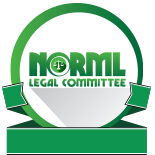Indianapolis DUI Criminal Defense Attorney
 If you or a loved one have been arrested for DUI or OVWI (operating while intoxicated), you probably have a lot of questions about what to expect. There will be court hearings to attend, evidence to review and decisions to be made. You need an experienced DUI attorney by your side to guide you through that process, advising you along the way.
If you or a loved one have been arrested for DUI or OVWI (operating while intoxicated), you probably have a lot of questions about what to expect. There will be court hearings to attend, evidence to review and decisions to be made. You need an experienced DUI attorney by your side to guide you through that process, advising you along the way.
The arrest itself can be terrifying. Being pulled over, questioned, asked to perform field sobriety tests (SFSTs), or submit to breath tests or blood tests is stressful and scary. And after the arrest, after you’ve bonded out or been released on your own recognizance (OR’d), the criminal justice system can be just as scary and confusing. Your life is turned upside down when you are accused of DUI in Indianapolis or central Indiana, with court hearings, possible license suspensions, or consequences at home or work. It is important to understand the process and what to expect so you can assist your lawyer in preparing your defense and resolving your case.
After the Arrest – Initial Hearing
The first hearing you will be scheduled for is the Initial Hearing. In some states, this is referred to as an arraignment. Indiana does not hold probable cause hearings, so the judge will read the charges and probable cause affidavit, submitted by the police or prosecutor, and determine if there is probable cause for your arrest. If probable cause is found, the case moves forward. If the judge determines that there was no probable cause for your arrest for operating while intoxicated, then you cannot be held or required to post bond, but the charges are not automatically dismissed. The state can still choose to proceed with the case (although their case is more than likely incredibly weak).
If you hire an attorney prior to your initial hearing and you are charged with misdemeanor DUI, in most cases, you can choose to waive the initial hearing. In that case, your lawyer can file a motion with the court notifying the court that you have been made aware of the charges, that you understand the charges and your rights and that you are waiving a formal hearing and reading of the charges. This is often the best option, since you will not be required to appear in court for this hearing. However, depending on the circumstances, attending the initial hearing can be beneficial in some cases, for example in apply for Specialized Driving Privileges, so it is important to discuss this strategy with your lawyer.
Your Driver’s License & DUI Implied Consent Laws
Under Indiana law (I.C. 9-30-6), when you obtain a driver’s license, you give consent to submit to chemical testing if the police have probable cause to believe you are operating a vehicle while intoxicated. If the police officer does believe you are driving drunk, he or she will read you the implied consent law and ask you to submit to either a breath test or blood draw. Many people believe that you should refuse, so as to not provide additional evidence to the police; however, if you do, your license will be suspended for one year or more and the police will more than likely seek a warrant and get the tests done anyway, so it’s usually not beneficial to refuse. Additionally, if you do refuse the tests, the law allows the state to introduce that information at trial, giving the jury a reason to try and guess why you refused or how drunk you were that night.
However, these tests are not infallible and an experienced attorney will be able to look for errors in these tests and challenge their reliability later on, if necessary. Additionally, If you do refuse the tests and the court suspends your license, you may be able to challenge this refusal, but there are deadlines that must be met in order to do so.
Pre-Trial Hearings and Preparing for Trial in your DUI Case
After the initial matters in the case are dealt with, you and your lawyer will begin preparing your defense, reviewing the evidence and working toward a resolution. Some cases will be resolved through a plea agreement, while other cases will be tried to a jury. Every DUI case is different, depending on the facts and circumstances of that client and events.
During this pre-trial phase, you may be required to attend pre-trial conferences in court. These are hearings to update the court on your progress and handle any evidentiary matters that need to be discussed with the court.
If there are any suppression issues in your case, such as whether the stop was illegal, or a test was performed incorrectly and should be kept out of the trial, the court may schedule a Suppression Hearing, where each side will present evidence on the contested issue and the court will decide what evidence should be admitted or suppressed.
Resolving Your DUI Case
Once all pre-trial matters are resolved, the case will either be concluded through a dismissal, plea or trial. Obviously, if a case is dismissed, that is excellent news, but most DUI cases do not end that way.
If you decide to accept a plea offer and it is your first DUI, you will most likely be facing probation, fines, a driver’s license suspension and additional requirements, such as attending a Victim Impact Panel, completing an alcohol assessment or performing community service work. If this is not your first DUI, you will be facing mandatory jail time, longer license suspensions and higher fees.
If your case is resolved by trial, it will either be a jury trial or a bench trial. A jury trial is exactly what it sounds like, a trial in front of a jury. A bench trial is tried only to the judge. There are pros and cons to both and ultimately, it is your decision to make.
Former Deputy Prosecutors – Current Indianapolis DUI Attorneys
When facing charges for DUI in Indiana, it is important to consider all of your options and all of the possible consequences a conviction for this type of offense can bring. Each DUI case is different and many factors can dramatically change the course of your defense strategy. It is important to speak with an DUI lawyer early on in the process to avoid missing any critical issues and/or defenses that may be raised.
Our Indianapolis DUI attorneys Julie Chambers and Katie Kawiecki can provide experienced, professional representation throughout the process. Facing DUI charges can be stressful and scary, and our DUI attorneys will be there to help relieve some of that fear, while working diligently to defend your case. Chambers Law Office represents clients throughout central Indiana, including Marion County (Indianapolis), Hamilton, Hancock, Johnson, Madison, Hendricks and Boone Counties. Call 317-450-2971 to speak with one of our Indianapolis DUI lawyers today!



